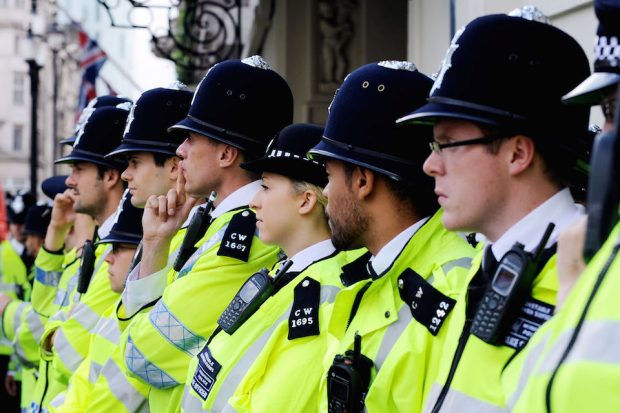100 years until UK police force is entirely diverse
It is a troubling fact that black and ethnic minority people are under-represented in the police force, including higher-ranking positions.
A longstanding issue in both the UK and the US is that black and minority ethnic officers are hugely underrepresented.
Figures by GOV UK show that at the end of March 2019, 93.1 per cent of police officers were from the White ethnic group while just 6.9 per cent were from other ethnic groups.
Analysing figures for the Met Police, which serves the Greater London area, only 14 per cent of police officers in the capital are from BAME communities, compared to 43 per cent of the London population.
While the UK police force is diversifying at its junior levels, at a senior level there are still huge obstacles. In the London MET, there are no black officers at the highest ranks. Data does show however that among senior ranks in the Met Police, there are 13 superintendents, four chief superintendents and one chief officer in the force who come from BAME communities - all figures which are still a cause for concern.

Worryingly, Home Office figures from 2019 show there is only one black chief officer in the whole country.
The Met's head of human resources, Clare David, has said "it would take over 100 years to be more representative of London" if the force continues at its rate.
The unfortunate events taking place in the US, sparked by the murder of George Floyd by a white police officer, shows how quickly African-American communities can lose trust and faith in the individuals who are supposed "protect and serve". UK police forces must wake up to this reality and make serious advancements in recruiting black applicants.
Although representation alone cannot fix larger societal issues that involve racism, when deployed properly, it can provide reassurance and support to communities of colour.
Helping achieve a more diverse police force, the UK's new Police Education Qualifications Framework - which provides new recruits three different opportunities to enter the service - has the aim of producing a force more that is more representative of the general population.
Ultimately, a difference can be made but only if black applicants progress to leader positions. Leadership matters, especially from those of a black or ethnic minority background, whose cultural and life experiences can better inform and represent the decisions and body of the UK police force.
Black leaders in the police force can inspire other officers, particularly of a BAME background, by highlighting their achievements, recognising their strengths, honing their skills, and providing opportunities for growth.







Comments